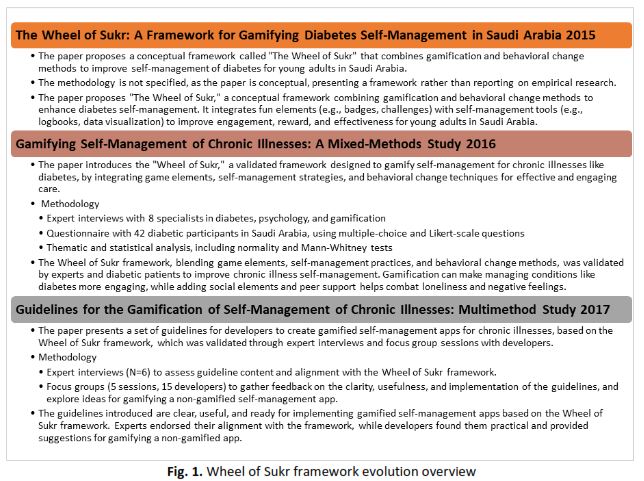Gamification Framework for Psychological Rehabilitation for Chronic Diseases Patient
DOI:
https://doi.org/10.37934/jhqol.5.1.5467Keywords:
Gamification, psychological rehabilitation, chronic diseases, patient engagement, acceptanceAbstract
The integration of gamification into healthcare has garnered significant attention for its potential to enhance psychological rehabilitation, particularly among patients managing chronic diseases. Such patients often face long-term treatment challenges, including reduced motivation, anxiety and social isolation. Despite the promise of gamified interventions, existing frameworks often lack standardization and fail to address the diverse needs of patients. This research focuses on enhancing the Wheel of Sukr framework to better support psychological rehabilitation for chronic disease patients. Using the Octalysis model as a foundation, the study evaluated the Wheel of Sukr, identifying gaps and introducing new elements such as "Reminder" and "Unpredictability" to bolster patient engagement and motivation. The enhanced framework was validated through expert review involving psychiatrists, psychologists and developers, ensuring its applicability in clinical settings. Key findings highlight the framework's improved capacity to sustain motivation and foster self-management by leveraging both intrinsic and extrinsic motivational strategies. However, the importance of balancing user engagement with the psychological well-being of patients was emphasized, particularly in refining features like reminders to avoid overwhelming users. This study contributes a refined gamification framework tailored to psychological rehabilitation in chronic disease management, emphasizing personalization, engagement and long-term sustainability. The findings underscore the potential of gamified healthcare interventions to empower patients, improve therapy adherence and promote overall well-being. Future work will focus on integrating therapeutic techniques, expanding healthcare system compatibility and validating the framework with broader patient populations.














